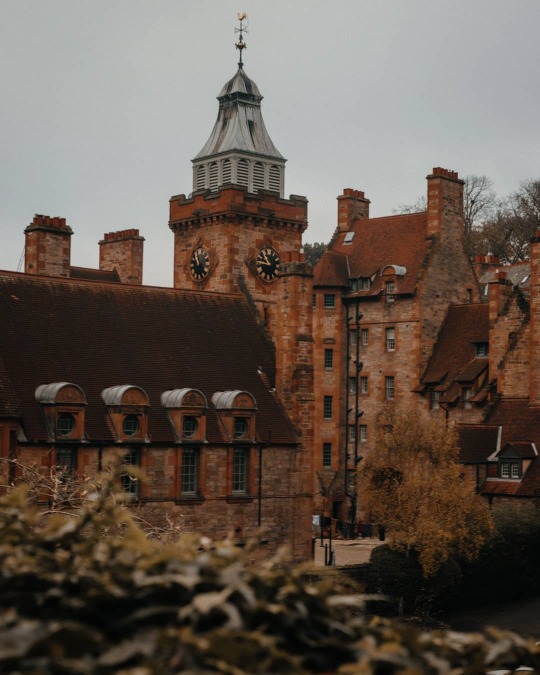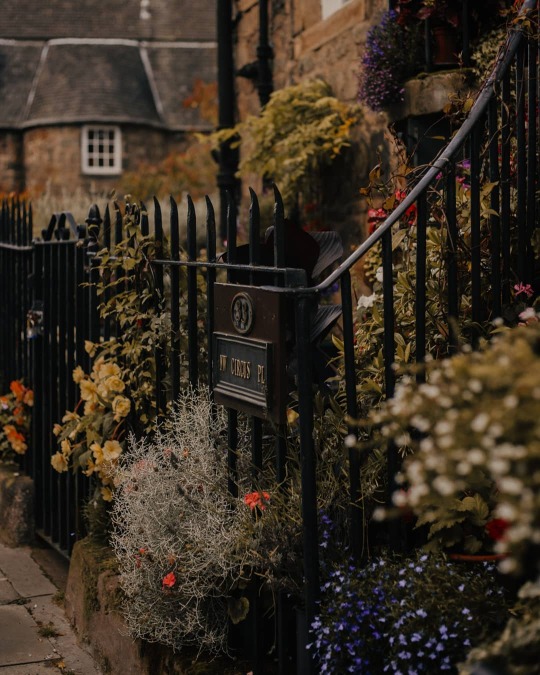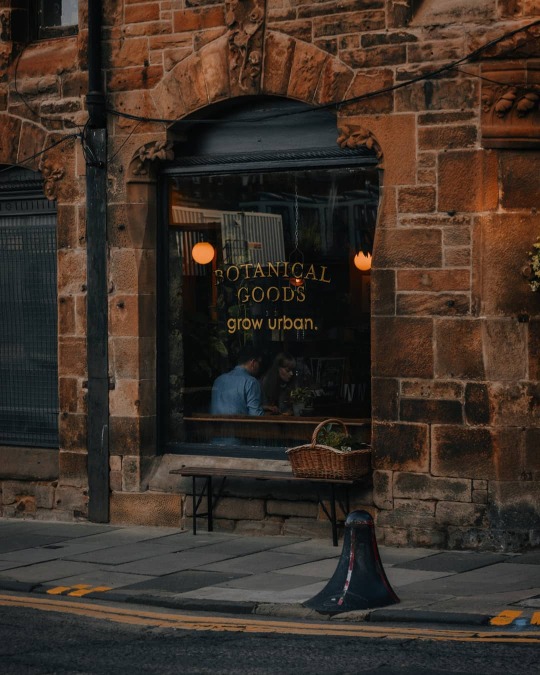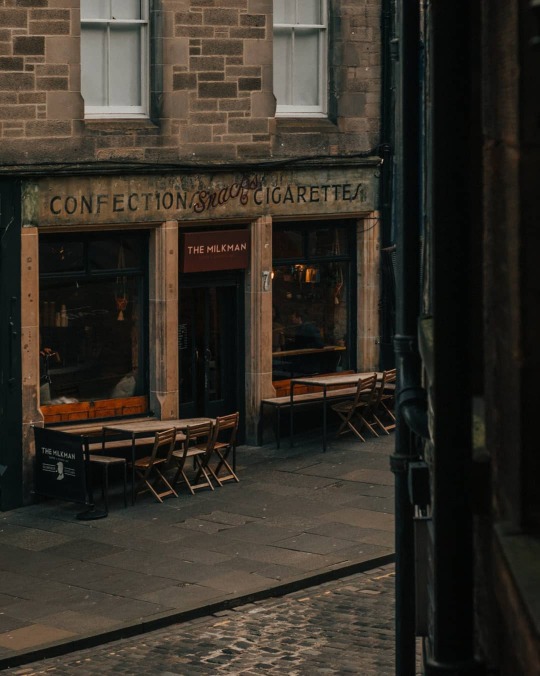Text
Being an adult and trying to find a new apartment suddenly makes people refusing to move out of their new haunted house in movies very realistic
1K notes
·
View notes
Text

My new little book collection from the husband to help me in my continued journey in horror.
109 notes
·
View notes
Text
Filler words in Norwegian
Can’t learn a language without fillers!
altså - “well…” or “so…”
It’s often used to enhance confidence, whether it’s strong or weak.
Altså, mamma sa at jeg får lov til å gjøre det.. / Well, mum said I’m allowed to do it..
vel - “well”, can be used in the same way as in English. You can also combine it with altså:
Vel, altså, her er planen… / Well, so, here is the plan…
liksom - the Norwegian equivalent to “like” - use it everywhere! It can also be used to enhance sarcasm.
Har du liksom tenkt å gå med det der? / Are you seriously like, going to wear that thing?
da - this literally means then, but we often use it to end sentences, especially if we’re saying something that another person might want to argue with. And since it means ‘then’, you can also use it in the same way as in English.
Jeg skulle jo liksom bare prøve den på, da. / I was just going to like, try it on.
ehh / øhh - uhh, uhm. Super useful.
på en måte - “in a way” or “kind of”.
Han er litt merkelig, på en måte. / He’s a little strange, kind of.
bare - “just”
Jeg skal bare innom butikken. / I’m just gonna pop by the store.
ikke sant? - translates to “not true”, but is used for saying “right?” “don’t you agree?”.
Around Bergen, people usually drop the “ikke” and just say “sant”. I’m from Bergen so I didn’t know that not everyone says this until I googled it lol.
skjønner du / skjø’ - used at the end of sentences in the same way as “you see” in English. It comes from the word “å skjønne”, which means to understand, to realize or to “get it”. “Skjø’” is not really used in the southern regions, but if you’re around Trøndelag, you’ll hear this a lot. In other regions one would say “skjønner du”.
Han er lærer, skjø’/skjønner du. / He is a teacher, you see.
Feel free to ask me questions about these or request more specific fillers!
3K notes
·
View notes
Text
Essays
Here’s a (non-exhaustive) list of essays I like/find interesting/are food for thought; I’ve tried to sort them as much as possible. The starred (*) ones are those I especially love
Literature + Writing
Godot Comes to Sarajevo - Susan Sontag
The Strangeness of Grief - V. S. Naipaul *
Memories of V. S. Naipaul - Paul Theroux *
A Rainy Day with Ruskin Bond - Mayank Austen Soofi
How Albert Camus Faced History - Adam Gopnik
Listen, Bro - Jo Livingstone
Rachel Cusk Gut-Renovates the Novel - Judith Thurman
Lost in Translation: What the First Line of “The Stranger” Should Be - Ryan Bloom
The Duke in His Domain - Truman Capote *
The Cult of Donna Tartt: Themes and Strategies in The Secret History - Ana Rita Catalão Guedes
Never Do That to a Book - Anne Fadiman *
Affecting Anger: Ideologies of Community Mobilisation in Early Hindi Novel - Rohan Chauhan *
Why I Write - George Orwell *
Rimbaud and Patti Smith: Style as Social Deviance - Carrie Jaurès Noland *
Art + Photography (+ Aesthetics)
Looking at War - Susan Sontag *
Love, sex, art, and death - Nan Goldin, David Wojnarowicz
Lyons, Szarkowski, and the Perception of Photography - Anne Wilkes Tucker
The Feminist Critique of Art History - Thalia Gouma-Peterson, Patricia Mathews
In Plato’s Cave - Susan Sontag *
On reproduction of art (Chapter 1, Ways of Seeing) - John Berger *
On nudity and women in art (Chapter 3, Ways of Seeing) - John Berger *
Kalighat Paintings - Sharmishtha Chaudhuri
Daydreams and Fragments: On How We Retrieve Images From the Past - Maël Renouard
Arthur Rimbaud: the Aesthetics of Intoxication - Enid Rhodes Peschel
Cities
Tragic Fable of Mumbai Mills - Gyan Prakash
Whose Bandra is it? - Dustin Silgardo *
Timur’s Registan: noblest public square in the world? - Srinath Perur
The first Starbucks coffee shop, Seattle - Colin Marshall *
Chhatrapati Shivaji Terminus, Mumbai’s iconic railway station - Srinath Perur
From London to Mumbai and Back Again: Gentrification and Public Policy in Comparative Perspective - Andrew Harris
The Limits of “White Town” in Colonial Calcutta - Swati Chattopadhyay
The Metropolis and Mental Life - Georg Simmel
Colonial Policy and the Culture of Immigration: Citing the Social History of Varanasi - Vinod Kumar, Shiv Narayan
A Caribbean Creole Capital: Kingston, Jamaica - Coln G. Clarke (from Colonial Cities by Robert Ross, Gerard J. Telkamp
The Colonial City and the Post-Colonial World - G. A. de Bruijne
The Nowhere City - Amos Elon *
The Vertical Flâneur: Narratorial Tradecraft in the Colonial Metropolis - Paul K. Saint-Amour
Philosophy
The trolley problem problem - James Wilson
A Brief History of Death - Nir Baram
Justice as Fairness: Political not Metaphysical - John Rawls *
Should Marxists be Interested in Exploitation? - John E. Roemer
The Discomfort You’re Feeling is Grief - Scott Berinato *
The Pandemic and the Crisis of Faith - Makarand Paranjape
If God Is Dead, Your Time is Everything - James Wood
Giving Up on God - Ronald Inglehart
The Limits of Consensual Decision - Douglas Rae *
The Science of “Muddling Through” - Charles Lindblom *
History
The Gruesome History of Eating Corpses as Medicine - Maria Dolan
The History of Loneliness - Jill Lepore *
The Anti-Che - Jay Nordlinger
From Tuskegee to Togo: the Problem of Freedom in the Empire of Cotton - Sven Beckert *
Time, Work-Discipline, and Industrial Capitalism - E. P. Thompson *
All By Myself - Martha Bailey *
The Geographical Pivot of History - H. J. Mackinder
The sea/ocean
Rim of Life - Manu Pillai
Exploring the Indian Ocean as a rich archive of history – above and below the water line - Isabel Hofmeyr, Charne Lavery
‘Piracy’, connectivity and seaborne power in the Middle Ages - Nikolas Jaspert (from The Sea in History) *
The Vikings and their age - Nils Blomkvist (from The Sea in History) *
Mercantile Networks, Port Cities, and “Pirate” States - Roxani Eleni Margariti
Phantom Peril in the Arctic - Robert David English, Morgan Grant Gardner*
Assorted ones on India
A departure from history: Kashmiri Pandits, 1990-2001 - Alexander Evans *
Writing Post-Orientalist Histories of the Third World - Gyan Prakash
Empire: How Colonial India Made Modern Britain - Aditya Mukherjee
Feminism and Nationalism in India, 1917-1947 - Aparna Basu
The Epic Riddle of Dating Ramayana, Mahabharata - Sunaina Kumar *
Caste and Politics: Identity Over System - Dipankar Gupta
Our worldview is Delhi based *
Sports (you’ll have to excuse the fact that it’s only cricket but what can i say, i’m indian)
‘Massa Day Done:’ Cricket as a Catalyst for West Indian Independence: 1950-1962 - John Newman *
Playing for power? rugby, Afrikaner nationalism and masculinity in South Africa, c.1900–70 - Albert Grundlingh
When Cricket Was a Symbol, Not Just a Sport - Baz Dreisinger
Cricket, caste, community, colonialism: the politics of a great game - Ramachandra Guha *
Cricket and Politics in Colonial India - Ramchandra Guha
MS Dhoni: A quiet radical who did it his way *
Music
Brega: Music and Conflict in Urban Brazil - Samuel M. Araújo
Color, Music and Conflict: A Study of Aggression in Trinidad with Reference to the Role of Traditional Music - J. D. Elder
The 1975 - ‘Notes On a Conditional Form’ review - Dan Stubbs *
Life Without Live - Rob Sheffield *
How Britney Spears Changed Pop - Rob Sheffield
Concert for Bangladesh
From “Help!” to “Helping out a Friend”: Imagining South Asia through the Beatles and the Concert for Bangladesh - Samantha Christiansen
Gender
Clothing Behaviour as Non-verbal Resistance - Diana Crane
The Normalisation of Queer Theory - David M. Halperin
Menstruation and the Holocaust - Jo-Ann Owusu *
Women’s Suffrage the Democratic Peace - Allan Dafoe
Pink and Blue: Coloring Inside the Lines of Gender - Catherine Zuckerman *
Women’s health concerns are dismissed more, studied less - Zoanne Clack
Food
How Food-Obsessed Millennials Shape the Future of Food - Rachel A. Becker (as a non-food obsessed somewhat-millennial, this was interesting)
Colonialism’s effect on how and what we eat - Coral Lee
Tracing Europe’s influence on India’s culinary heritage - Ruth Dsouza Prabhu
Chicken Kiev: the world’s most contested ready-meal *
From Russia with mayo: the story of a Soviet super-salad *
The Politics of Pancakes - Taylor Aucoin *
How Doughnuts Fuelled the American Dream *
Pav from the Nau
A Short History of the Vada Pav - Saira Menezes
Fantasy (mostly just harry potter and lord of the rings)
Purebloods and Mudbloods: Race, Species, and Power (from The Politics of Harry Potter)
Azkaban: Discipline, Punishment, and Human Rights (from The Politics of Harry Potter) *
Good and Evil in J. R. R. Tolkien’s Lengendarium - Jyrki Korpua
The Fairy Story: J. R. R. Tolkien and C. S. Lewis - Colin Duriez (from Tree of Tales) *
Tolkien’s Augustinian Understanding of Good and Evil: Why The Lord of the Rings Is Not Manichean - Ralph Wood (from Tree of Tales) *
Travel
The Hidden Cost of Wildlife Tourism
Chronicles of a Writer’s 1950s Road Trip Across France - Kathleen Phelan
On the Early Women Pioneers of Trail Hiking - Gwenyth Loose
On the Mythologies of the Himalaya Mountains - Ed Douglas *
More random assorted ones
The cosmos from the wheelchair (The Economist obituaries) *
In El Salvador - Joan Didion
Scientists are unravelling the mystery of pain - Yudhijit Banerjee
Notes on Nationalism - George Orwell
Politics and the English Language - George Orwell *
What Do the Humanities Do in a Crisis? - Agnes Callard *
The Politics of Joker - Kyle Smith
Sushant Singh Rajput: The outsider - Uday Bhatia *
Credibility and Mystery - John Berger
happy reading :)
34K notes
·
View notes
Photo

my masterpost | my studygram | ask me anything
[click image for high quality]
Other advice posts that may be of interest:
How To Stop Procrastinating
How To Study When You Really Don’t Want To
Active Revision Techniques
5K notes
·
View notes
Text
Am I getting writing done? No. But am I keeping up with readings and emails? No. But am I at least not inducing unnecessary anxiety by comparing myself to others who are highly productive and thriving during the pandemic? Also no.
4K notes
·
View notes
Text
One of my favorite linguistic phenomena is rebracketing, which is when a word or words is/are redivided differently, either two words becoming one, one word heard as two, or part of one word interpreted as part of the other. This frequently happens with articles, for example:
apron was originally napron, but “a napron” was interpreted as “an apron”
newt comes from ewt by the same process
In the opposite direction, nickname comes from Middle English nekename which in turn came from ekename (an ekename -> a nekename) where “eke” was an old word meaning “also” or “additional” (so basically “an additional name”)
ammunition comes from an obsolete dialectal French amunition, which came from munition, the phrase la munition being heard as l’amunition.
the nickname Ned comes from Ed, via “mine Ed” being heard as “my Ned” (in archaic English, “my” and “mine” had the same relationship as “a” and “an”), same with several other nicknames like Nell
The word “orange” ulimately derives from the Arabic nāranj, via French “orange”, the n being lost via a similar process involving the indefinite article, e.g., something like French “une norange” becoming “une orange” (it’s unclear which specific Romance language it first happened in)
in the Southern US at least (not sure about elsewhere), “another” is often analyzed as “a nother”, hence the phrase “a whole nother”
omelet has a whole series of interesting changes; it comes from French omelette, earlier alemette (swapping around the /l/ and /m/), from alemelle from an earlier lemelle (la lemelle -> l’alemelle)
Related to this, sometimes two words, especially when borrowed into another language, will be taken as one. Numerous words were borrowed from Arabic with the definite article al- attached to them. Spanish el lagarto became English alligator. An interesting twist is admiral, earlier amiral (the d probably got in there from the influence of words like “administer”) from Arabic amir al- (lord of the ___), particularly the phrase amir al-bahr, literally “lord of the sea”.
Sometimes the opposite happens. A foreign word will look like two words, or like a word with an affix. For example, the Arabic kitaab (book) was borrowed into Swahili as kitabu. ki- happens to be the singular form of one of the Swahili genders, and so it was interpreted as ki-tabu. To form the plural of that gender, you replace ki- with vi-, thus, “books” in Swahili is vitabu. The Greek name Alexander became, in Arabic, Iskander, with the initial al- heard as the article al-.
Similarly, the English word Cherry came from Old Norman French cherise, with the s on the end interpreted as the plural -s. Interestingly enough, that word came from Vulgar Latin ceresia, a feminine singular noun, but originally the plural of the neuter noun ceresium! So a Latin plural was reinterpreted as a singular in Vulgar Latin, which in turn was interpreted as a plural when borrowed into English!
The English suffix -burger used with various foods (e.g., cheeseburger, or more informally chickenburger, etc.) was misanlyzed from Hamburger as Ham-burger, itself from the city of Hamburg
This can happen even with native words. Modern French once is used for the snow leopard, but originally meant “lynx”. In Old French, it was lonce (ultimately from the same source as lynx), which was reinterpreted as l’once! In English, the word “pea” was originally “pease”, but that looked like it had the plural -s on it, and so the word “pea” was created from it. Likewise, the adjective lone came from alone, heard as “a lone”, but alone itself came originally from all one.
55K notes
·
View notes
Text
All French words ending in -age are masculine, except for the following 6. Here is a nice mnemonic that helps you to remember them:
CALIMPAPLARANA
la cage
l’image
la page
la plage
la rage
la nage
209 notes
·
View notes
Text
Hey did you know I keep a google drive folder with linguistics and language books that I try to update regularly
215K notes
·
View notes
Text




25th of january ¦ instagram link
Here are the books I’ve been reading!
Breasts & Eggs by Mieko Kawakami ✔️
J'Adore Mon Chat by Alberto Montt
Le Vieil Homme et son Chat by Nekomaki
As an attempt to get better at french, I’ve been reading out the french books to my fluent partner & I can already feel a slight improvement on my accent! What have you all been enjoying recently? 🤍☕
750 notes
·
View notes
Text
study & chill playlist 🎵 🎶
Hi, it’s werelivingarts! I often have hard time to search for music to study so here are some suggestions and compiled lists of playlists that you can try out if you want!
[playlist] I couldn’t sleep, so I played a song.
[playlist] a deepening night with songs.
[playlist] with the fresh breeze of autumn night.
[playlist] a song that signals the approach of autumn:)
[playlist] how was your day today?
[playlist] a lazy afternoon, with that warm sunshine:)
[playlist] Why don’t you listen to this song when it rains?
[playlist] one cup of coffee with jazz hip hop.
[playlist] for your night drive aesthetic.
[playlist] It’s just… a song that I really want you to listen to today.
[playlist] I need to relax in my busy daily life!
[playlist] I wish I could comfort you.
[playlist] chill bts lofi hiphop mix
[playlist] 새해 다짐이 틀어지면 뭐 어때
[playlist] you’re studying in a haunted library with ghosts
[playlist] english songs chill study
[playlist] the day I want to be achromatic alone in a colorful world
[playlist] emotional song when your mind is a mess
[playlist] let it hurt until it can’t hurt anymore
3K notes
·
View notes
Text
French Short Story
Je l’observais silencieusement de derrière mes lunettes de soleil sombres et mon masque chirurgicale, un pied à terre et l’autre sur une des pédales de mon vélo. Il attendait au même feu rouge d’un carrefour géant, à ma diagonale, un peu plus avancé. Il semblait âgé d’une quarantaine d’années. Ses cheveux et sa barbe noires étaient déteints par un saupoudrage de gris, son visage bronzé était marqué par les rides et alourdis par le temps. Son t-shirt gris et taché ne faisait rien pour cacher son bide qui débordait du haut de son pantalon. J’étais alors persuadée qu’il avait volé le vélo sur lequel il était assis. Le vélo était bien trop petit pour lui; ses jambes étaient recroquevillées jusqu’à sa poitrine. On aurait dis un clown sur son tricycle comiquement petit, menant un cirque urbain et banale. J’aurais même parié que ce vélo avait une fois appartenu à une adolescente qui passait par une phase tomboy: il était gris métallique sans frou-frous, trahit seulement par la barre du milieu en pente, l’élément distingué d’un vélo pour femme.
La roue arrière du vélo était complètement dégonflée et je l’ai applaudis mentalement pour son endurance en dépit de son apparence d’antithèse d’athlète.
Les secondes s’écoulèrent et du coin de l’œil vis qu’il se tourna lentement vers moi. Je sentis son regard qui me scanner de haut en bas avant qu’il ouvre sa bouche pour ne dire qu’un seul mot.
« Salope »
Je sentis mon corps se raidir et j’espéra qu’il ne l’avait pas vu; je ne voulais pas lui donner la satisfaction d’une réaction, aussi mineur qu’elle ne soit. Aussitôt le moment venu, aussitôt était-il parti. J’avais retrouvé le calme d’avant et je suivait d’un roulement des yeux le mot qui, à présent, flottait et se dissoudrait dans l’air étrangement estivale de janvier. Ce mot là, je l’avais déjà entendu parsemé dans ma vie dès l’âge de quinze ans par des inconnus qui croyaient que traiter une jeune femme de salope leur rendrait un peu de pouvoir. Et tout de même, des doutes s’installèrent au fond de ma gorge et les pensées commencèrent à tourbillonner dans ma tête. L’avais -je cherché? Peut être avait-il pu voir le croquis crude de son personage que j’avais tracé avec mes préjugés pointus? Je devrais peut être l’excuser, après tout, je ne connaissais pas son histoire ni sa présence mentale.
N’ayant pas reçu de réaction, le voleur présumé a changé de cap et tourné à droite pour continuer sa parade dégonflée. Devant moi, le feu est devenu vert et je me suis remise sur mon chemin, laissant derrière moi le moment figé au carrefour.
15 notes
·
View notes
Text
here’s to everyone hitting a low point after doing really well. you’re amazing and so strong and your hard work is not erased. you will find happiness again
103K notes
·
View notes
Text
your girl is meant to be working! but instead she made her own quiz!
so please, find out what your underlying motif is, and chuck it in the tags for me to read <3
21K notes
·
View notes
Text
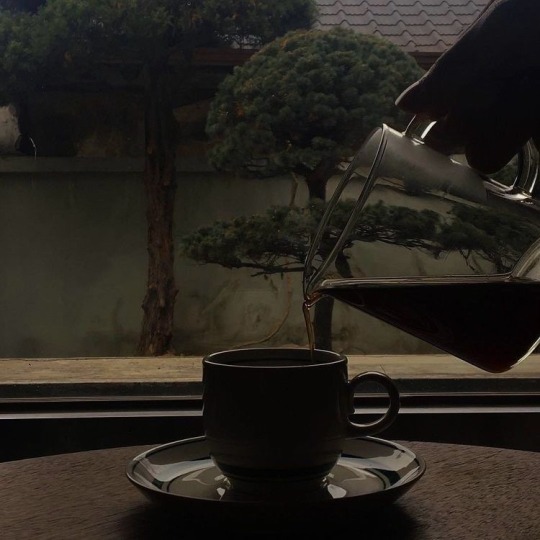
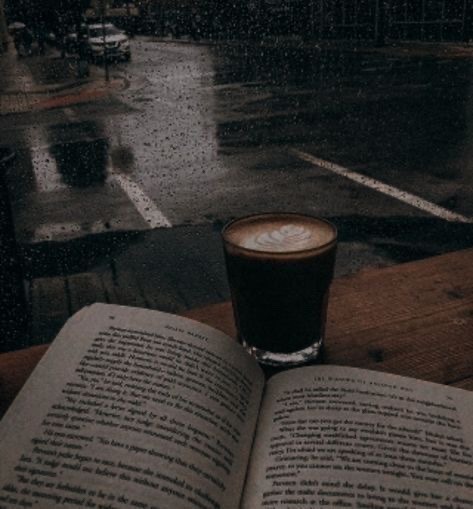
“To fall in love with someone's thoughts - the most intimate, splendid romance.”
Sanober Khan
9K notes
·
View notes



